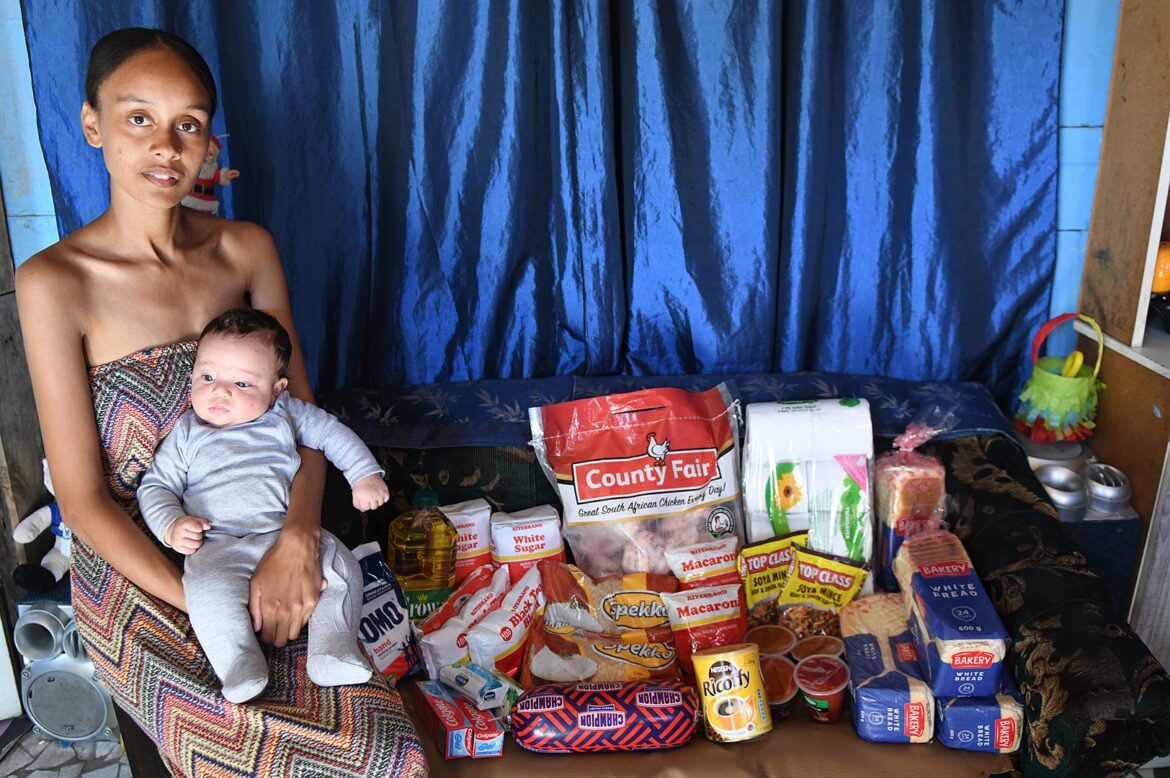A 10-year-old grade 4 student in Cape Town passed out in the classroom due to hunger, an unfortunate scenario that is becoming all too familiar in South Africa. The child, who suffers from diabetes, had nothing to eat that day because it wasn’t her turn to take lunch to school. Her sister explained that with multiple siblings, all living with their grandmother, the family couldn’t afford to send them all to school with lunch every day, so they had to take turns. This situation is one of many faced by children from families dependent on social grants, particularly the South African Child Support Grant (CSG).

Beryl, an administration staff member at a school in Athlone, spoke about the recurring cases of children coming to school hungry. Many of these children complain of stomach aches because they have not eaten the night before or in the morning. Beryl noted that these children often live with their grandparents, as their parents are absent due to drug addiction. The CSG, which is meant to provide financial support to caregivers of children, has been praised for its effectiveness in reaching children in poor communities. Yet, the amount provided—currently R530 per child from April 2024—is often too small to prevent malnutrition and hunger.
A 2023 review of the CSG by the Children’s Institute at the University of Cape Town revealed that while the grant is successful in targeting poor children, it is still insufficient to address the severe food insecurity many face. The report found that although over 13 million children receive the grant, more than seven million children remain below the food poverty line, which is set at R796. Additionally, 27% of children in South Africa are stunted, a direct consequence of poor nutrition that affects their ability to learn and thrive in adulthood.
To address this issue, there have been calls for the government to introduce a Maternal Support Grant (MSG) to improve the nutritional welfare of pregnant women. This grant would ensure better health outcomes for both mothers and their unborn children, potentially saving the country billions in healthcare costs. Advocates argue that pregnancy is a time of heightened vulnerability, and current support for pregnant women is inadequate.
For parents like Thandeka, the struggles are compounded by the cost of raising children. Thandeka, a mother-to-be and recipient of the CSG, shared her concern about the high cost of baby formula, which could reach over R600 per month. Despite the free education her daughter receives, Thandeka still has to pay R350 for school transport. With food costs reaching R3,000 a month, and clothing needs adding another R1,500 every six months, Thandeka finds it difficult to make ends meet.
Similarly, Eliza, a young mother from Westbury, Johannesburg, faces her own set of challenges. Although her daughter attends daycare at her grandmother’s center, which she doesn’t have to pay for, Eliza struggles with daily expenses, relying on hand-me-downs and charitable donations for food and basic essentials. She and her parents are also battling to get by, further highlighting the financial strain on families reliant on the CSG.
Zama, another CSG recipient from Durban, earns close to the maximum allowed to qualify for the grant, but still finds it insufficient. Her daughter has asthma, and with no free clinics in her area, she has to pay for private doctor visits. Zama believes the current amount, R530, is not enough to cover her child’s needs, especially given rising healthcare and living costs.
Even the most basic needs, like diapers and formula for an infant, can consume the entire CSG. With diapers costing up to R2.78 per unit, parents of newborns can spend upwards of R440 a month on diapers alone, leaving little for other essentials. Formula, which is required for proper infant nutrition, can cost an additional R15 for a 110ml pouch, further stretching the limited grant funds.
The reality for many parents is that the CSG is inadequate to meet the basic costs of raising a child. The grant is meant to alleviate child poverty, but it fails to keep pace with the rising costs of living, particularly in terms of food, healthcare, and essential baby products. Given the high rates of child malnutrition, stunting, and poverty, calls for an increase in the CSG have been echoed by international organizations such as the United Nations’ Committee on the Rights of the Child.
In conclusion, while the CSG has been an important lifeline for millions of South African children, its current value is not enough to protect children from the harsh realities of poverty. It is clear that a reevaluation of the amount provided is necessary to ensure that children in South Africa have access to the nutrition, care, and opportunities they need to thrive.
